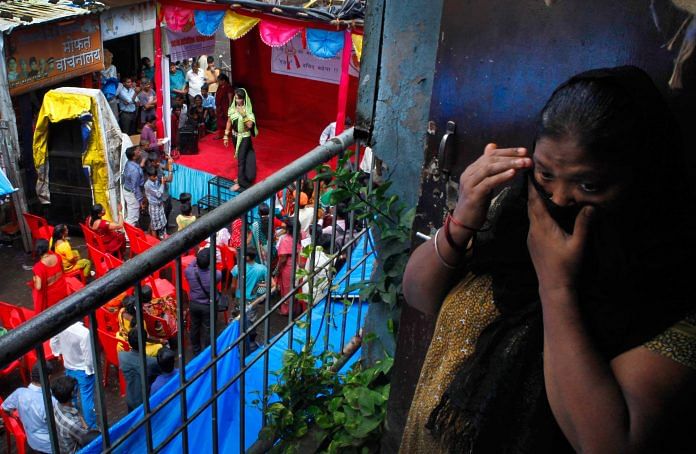In The Gendered Proletariat: Sex Work, Worker’s Movement and Agency, Swati Ghosh looks to understand the worker-status claim of sex-work in a meaningful fashion.
Is sex-work about sex or about work? And if it is categorically work, then how can one begin to think about exploitation of the prostitute in the light of their claim towards decriminalization and for citizenry? These questions drive Swati Ghosh’s decade long quest, beginning in 1997, amongst sex-workers’ in Sonagachi area in Kolkata.
To understand the worker-status claim of sex-work in a meaningful fashion, Ghosh moves away from the traditional feminist scholarship that tends to focus on the politics of ‘sex’ in sex-work. Instead, she asks a deeply interesting political economic question- in what ways do sex-work generate value in the economy in order to qualify as work, especially within a capitalist economy wherein producing surplus-value forms the crux of growth?
The writing, in largely focusing on the conceptual basis of labour and value as thought by Marx, reconfigures the figure of the prostitute as situated within modernity who finds herself in a position where she has to negotiate with both the subjective morality of her own contemporary and institutional forces that simultaneously extricates (reproductive labour) from her even as she is rendered morally disingenuous.
Marx’s theory connecting value and labour determines value as (a) a social production of relation among people (b) which regulates the distribution of labour; and (c) is an expression of abstract labour.
Thus, the prostitute then comes to become the gendered proletariat.
Beginning with an analysis of sex-as-work, Ghosh notes that economic production is of two kinds- commodity and non-commodity production, commonly called, products and services. To overcome the impasse of sex-as-work, Ghosh argues that sex-work is a service form of value creation where the product is consumed as soon as it is produced at the very site in which it is produced. In that sense, sex-work, unlike other forms of labour, it is deeply personal and does not produce exchangeable surplus.
She keeps in line with Gayle Rubin’s thinking who conceptualises the history of prostitution as effectively the history of traffic in women where women get to be exchanged as commodities (within kinships through marriages) owing to the various forms of reproductive labour that they can produce and provide. Conversely, it is by the production of such reproductive labour that the category of ‘women’ come to emerge from females,
Ghosh renders the sexual service that prostitutes thus provide as deeply personal and inalienable in nature, tied to the condition of prostitutes being ‘women’ in relation to their male clientele. Further, in applying Marx’s theory of value, she goes on to stress upon the impossibility of abstracting sex-as-labour (given that it does not have exchange value in the market).
She writes, “sex work may be envisioned as use-value that cannot be homogenized or equated with surplus-value producing wage laborers,” firmly establishing the labour that prostitutes produce as inalienable in character.
Given this context of inalienability of labour and impossibility of producing exchange value, what then is the relevance of the sex workers’ claim to the status of a worker in their demand for worker’s rights? As it becomes evident through Ghosh’s work, within the welfare state matrix, the claim to the status and rights of workers is simultaneously a claim to decriminalization and citizenship.
The rights narrative drawn by the sex-workers’ forum invokes both traditionalist and modernist arguments and mobilizes a class-based position to substantiate her place in society as legible citizens. Within this frame, she usurps her active participation in the HIV-AIDS intervention program by the state as her contribution towards creating healthy and disease free bodies by which she then claims her right to legible citizenship.
However, such a claim is not without its doubts. For instance, her lived experience as a prostitute belies her worker status for the work itself is arranged within a complex matrix of human trafficking and exploitation at the hands of the traffickers, pimps, and madams. These are power relations that prostitutes are materially embedded in, and relations that don’t allow a complete assertion of sex-work as mediated solely by choice.
In largely working with the prostitute as a figure, Ghosh’s otherwise analytically robust thesis however elides upon this rich ethnographic context in Sonagachi where the world of trafficking, pimps, and madams problematically intersect with the prostitutes’ claim as worker.
The sense of alienation that prostitutes face is so stark that often find themselves equating their sexual roles in relation to the housewife rather than the proletariat, primarily seeking emancipation within the realm of the domestic rather than the work. It is in this context that Ghosh comes to situate the agential prostitute as a gendered proletariat, not within the working-class labour, but within the domestic space of reproductive labour.
In doing so, she destabilizes the categories of exchange and concrete labour by which surplus in Marx comes to be generated and that which determines value in labour.
Arpita Phukan Biswas is PhD in sociology from the Indian Institute of Technology-Bombay.



